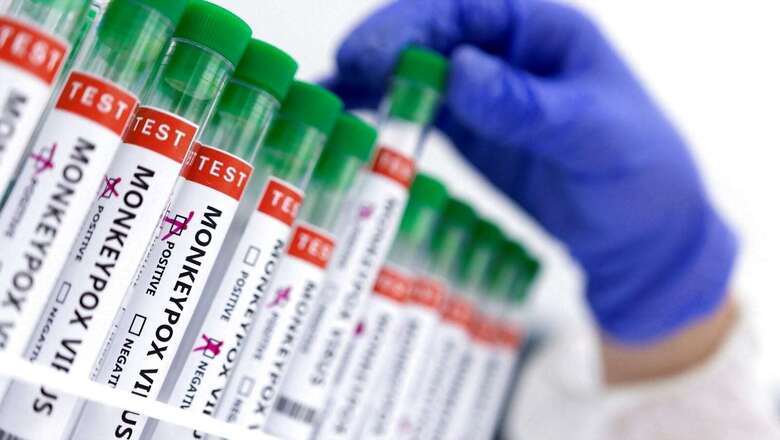
views
As concerns have been raised over monkeypox infections in different parts of the world, a new study in the UK has suggested that antiviral medications might be able to reduce the symptoms and the amount of time a patient remains contagious.
The retrospective study, of seven patients diagnosed with monkeypox in the UK between 2018 and 2021, said although the latest outbreak has affected more patients than previously encountered in the country, historically, the disease has not transmitted efficiently among people, and, overall, the risk to public health is ‘low’.
The cases analysed in the study, published in peer-reviewed The Lancet Infectious Diseases journal, represent the first instances of in-hospital and household transmissions outside of Africa.
The study also records the patient’s response to the first off-label use of two different antiviral medications – Brincidofovir and Tecovirimat – to treat the disease.
Brincidofovir tablets are used for the treatment of human smallpox disease in adults and paediatric patients, including neonates. While Tecovirimat is the first approved drug used to treat smallpox. The drug has also been studied for treatment of monkeypox and orthopoxvirus.
However, the new study found little evidence that brincidofovir had any clinical benefit but concluded that more research into the potential of tecovirimat would be warranted.
Monkeypox, a close relative of the smallpox virus, has currently no licenced treatments, and there is limited data on the duration of its contagiousness, with the incubation period ranging from five to 21 days. Patients typically stay in isolation in a specialty hospital to prevent spreading the virus to others.
Did Anti-Viral Medicines Help in Recovery?
According to the study, researchers reported patient response to antiviral medications developed to treat smallpox – Brincidofovir and Tecovirimat – which have previously demonstrated some efficacy against monkeypox in animals.
Between 2018 and 2019, four patients observed in this study were treated for monkeypox in infectious disease units in England.
“Three of these cases were imported from West Africa. The fourth case occurred in a healthcare worker 18 days after initial exposure to the virus and was the first example of monkeypox transmission in a hospital setting outside of Africa,” the published study explained.
The initial three patients were treated with Brincidofovir seven days after the initial onset of the rash. The drug was not observed to have any convincing clinical benefit in treating monkeypox and alterations in liver blood tests were observed.
“The researchers note that it is not known whether Brincidofovir administration earlier in the course of the disease or at a different dosing schedule would have yielded different clinical outcomes,” the study said.
However, despite this, all four patients including the one who was hospitalised, were fully recovered.
In 2021, three more cases of monkeypox were reported in the UK in a family travelling from Nigeria, with two of these cases being the first examples of household transmission outside of Africa.
The study said one of these cases occurred in a child, who was observed carefully due to the association of a higher likelihood of mortality from monkeypox in children. “Fortunately, this individual experienced mild illness and got fully recovered,” the study added.
One of the patients in the UK last year was treated with Tecovirimat and experienced a shorter duration of symptoms and upper respiratory tract viral shedding than the other cases in this cluster.
“However, the authors note that conclusions are unable to be drawn on antiviral effectiveness against monkeypox in such a small cohort, calling for further research into antivirals to treat this neglected tropical disease,” it said.
How UK Data Can Help Understand the Disease Better
“The authors also report detection of monkeypox virus in blood and throat swabs,” said the study while further advising that as optimum infection control and treatment strategies for this disease are not yet established, data from the study could help inform global efforts to further understand the clinical features of the disease as well as transmission dynamics.
“As public health officials are trying to understand what is causing the May 2022 monkeypox outbreaks in Europe and North America, which have affected several patients who reported neither travel nor an identified link to a previously known case, our study offers some of the first insights into the use of antivirals for the treatment of monkeypox in humans,” said Dr Hugh Adler of the Liverpool University Hospitals NHS Foundation Trust, lead author on the paper.
Read all the Latest India News here




















Comments
0 comment